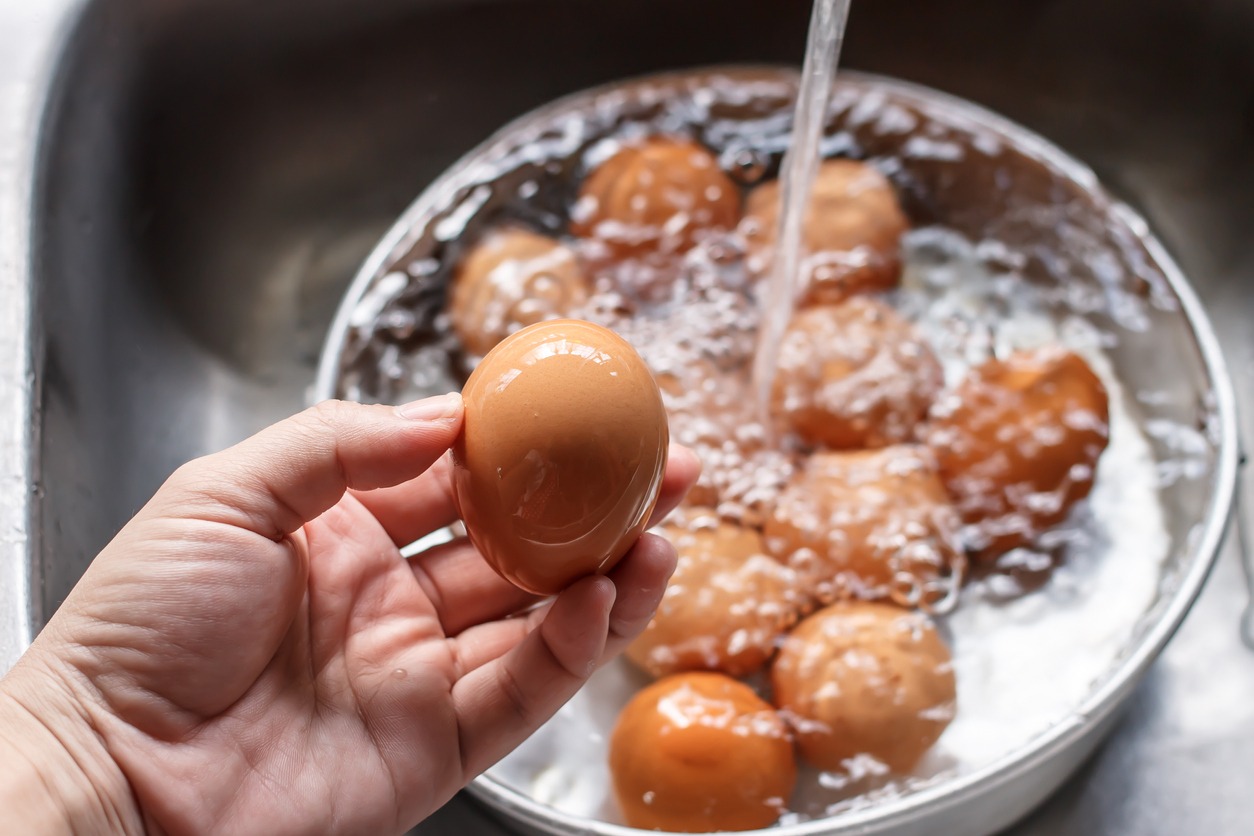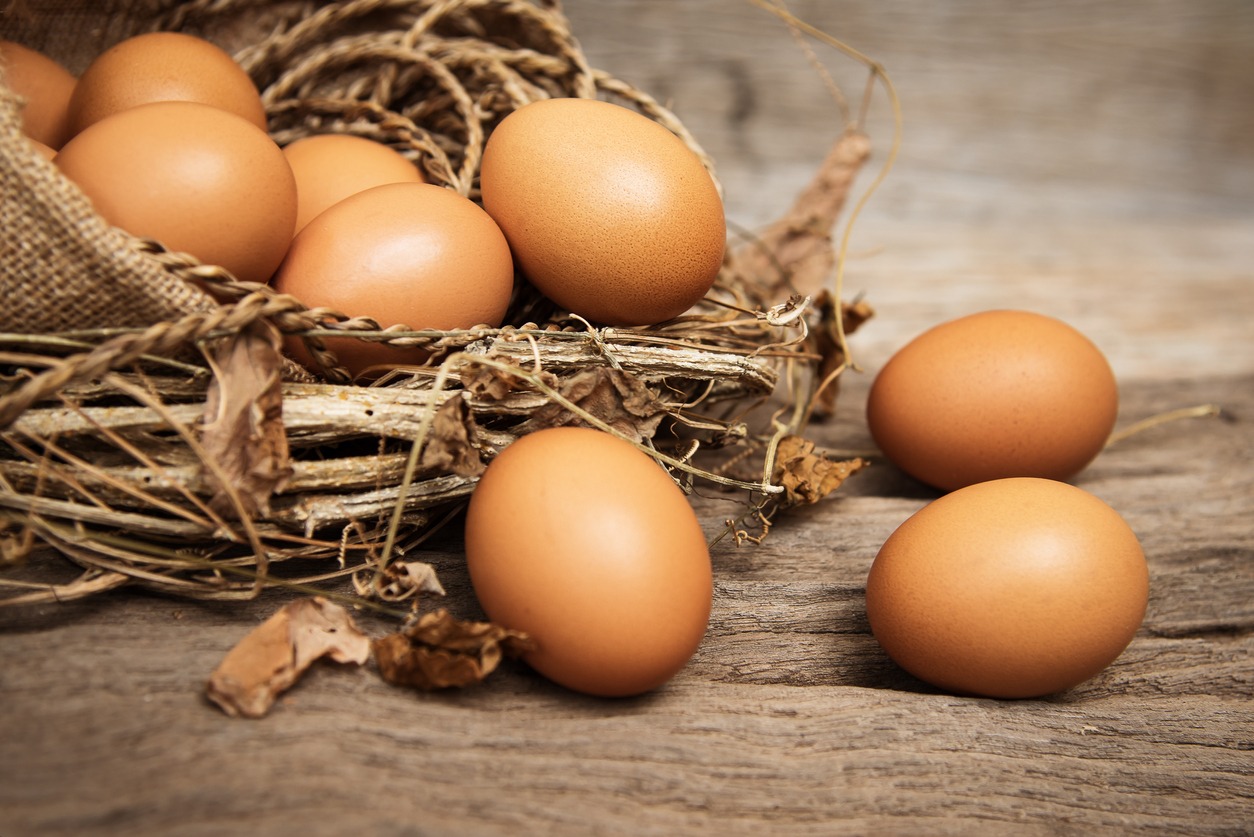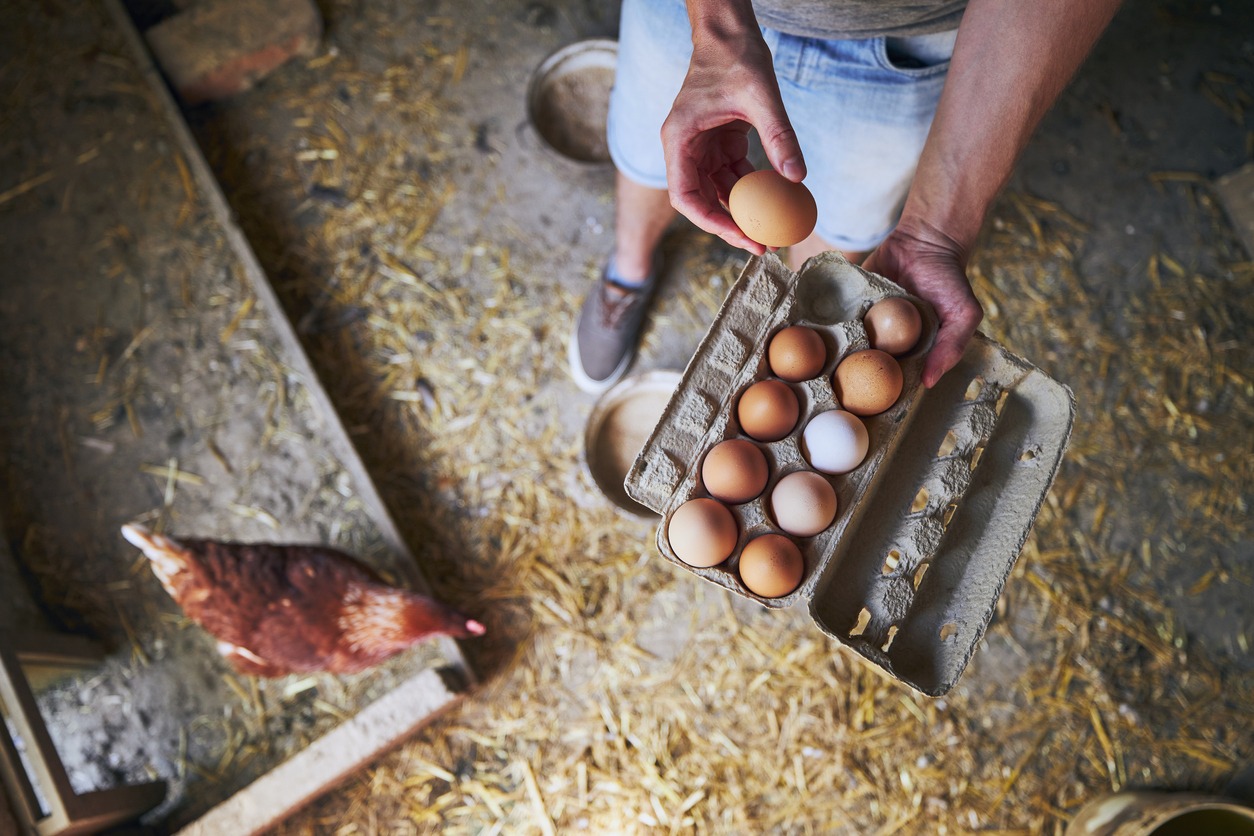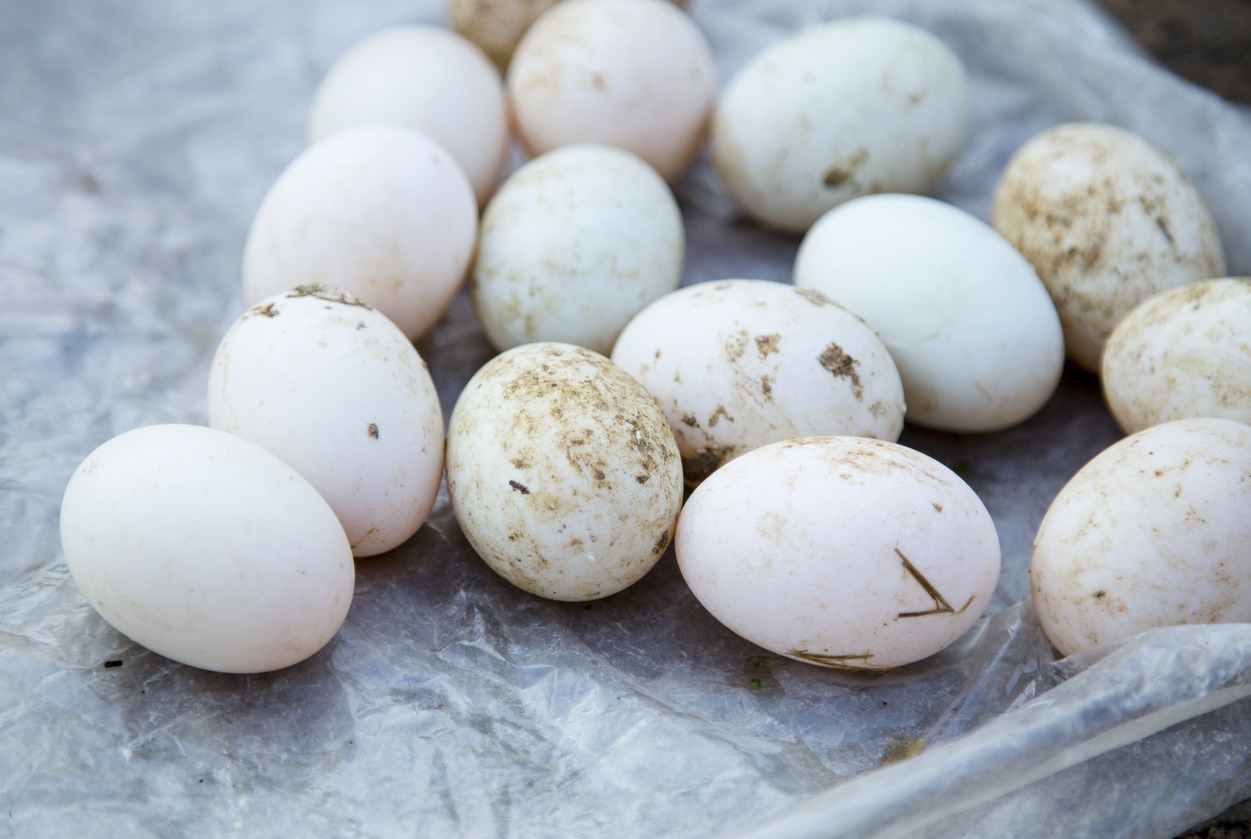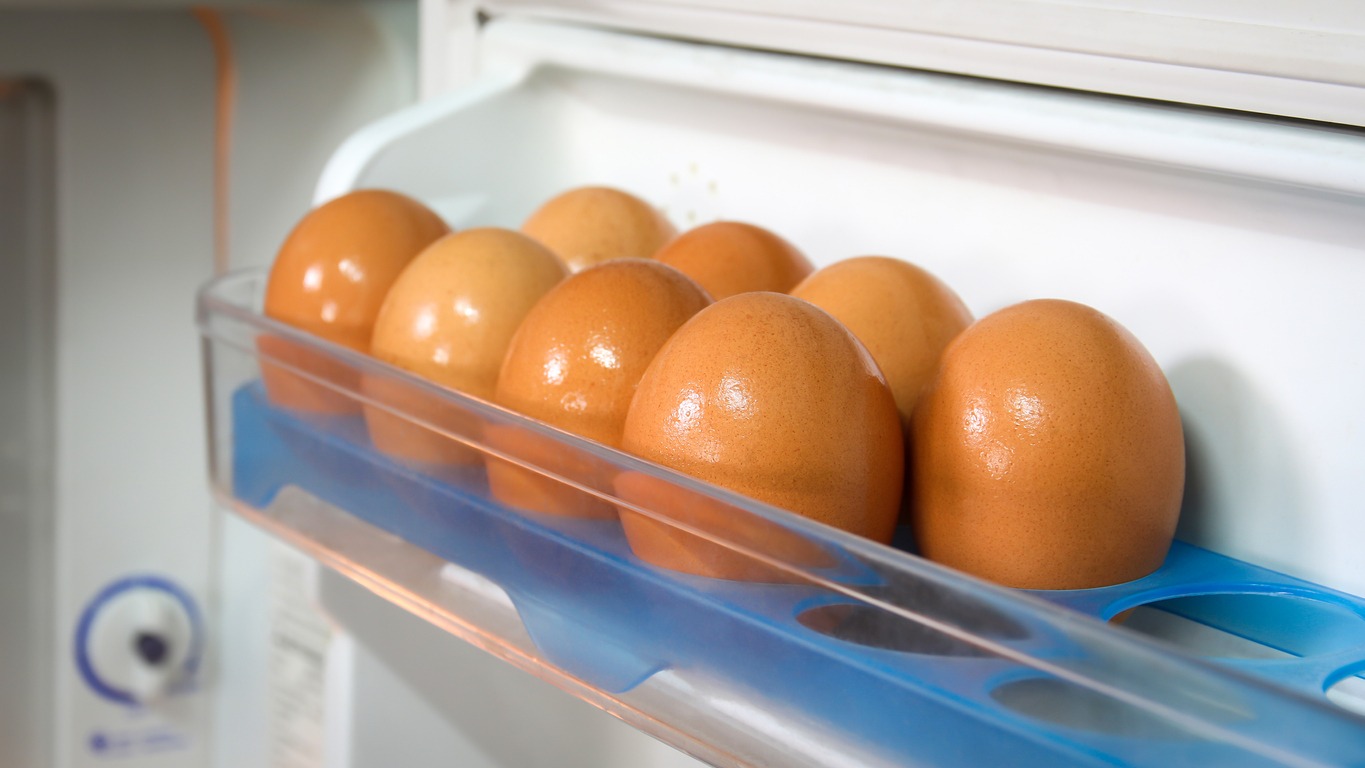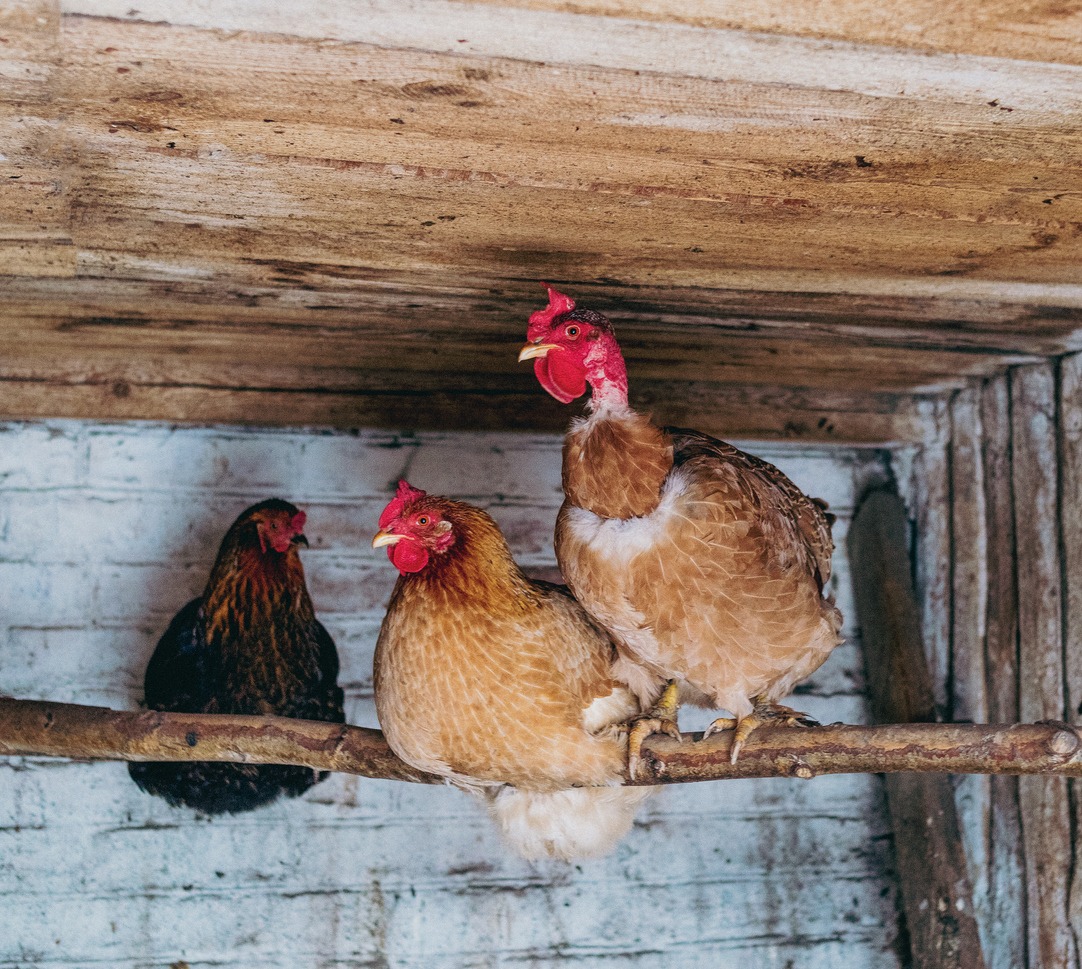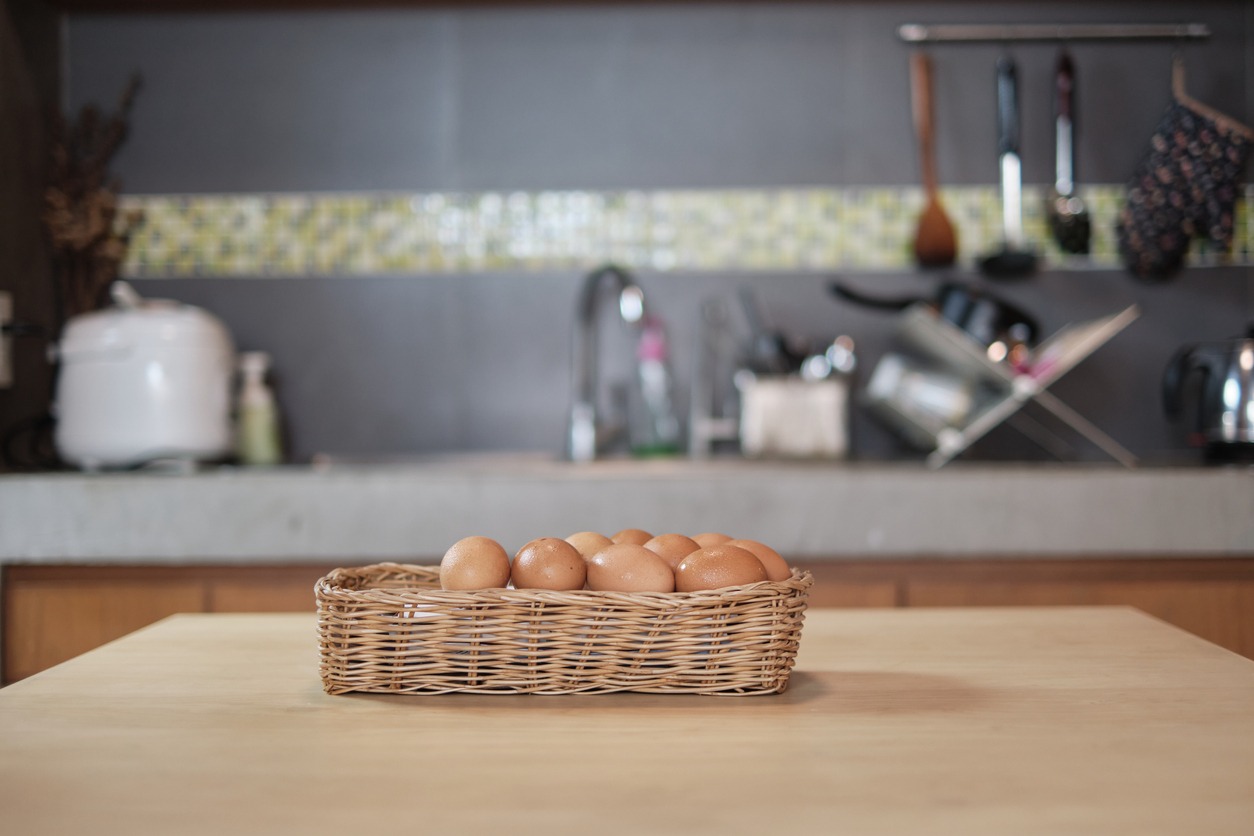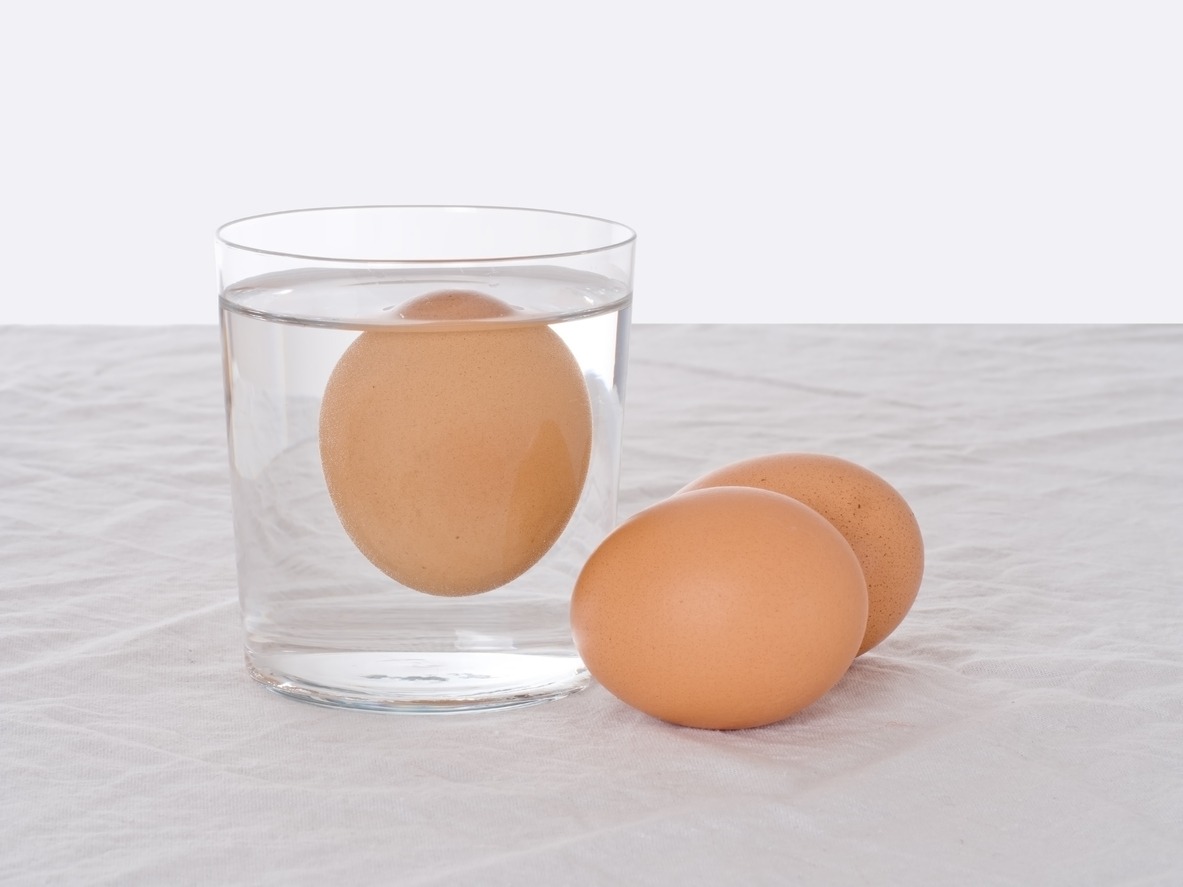It may seem logical to wash or rinse the eggs you collect from your chicken coop when you bring them indoors, especially since we often wash produce from our vegetable gardens.
And considering where they come from, common sense would suggest that eggs need to be washed. However, if you ask us, “Should I wash my fresh eggs?” our short answer would be “No.” Believe it or not, there’s more to washing eggs than you may think. Read on to know the reason why.
Why We Don’t Need to Wash Eggs
When a hen lays an egg, it coats the shell with a protective layer called the “egg bloom.” This layer, scientifically known as the egg cuticle, is made of protein and protects against bacteria. It keeps the egg safe from infection and helps it stay fresh for longer, whether it’s fertilized or not.
However, the egg shells are porous, so washing eggs removes this protective coating, making them more prone to spoilage, especially if stored at room temperature. It’s hard for bacteria to get inside a dry egg, but washing the egg removes the bloom and invites bacteria to be drawn inside the egg. Also, washing eggs in cool water creates a vacuum that pulls unwanted bacteria inside even faster.
In the commercial egg industry, eggs are washed and pasteurized. Pasteurization involves heating eggs quickly to a specific temperature to kill bacteria. This process is mandated by the USDA for all commercially sold egg products in the US. However, pasteurization doesn’t provide long-term protection against contamination.
To ensure food safety, it’s best to store washed eggs in the refrigerator, whether pasteurized or not, and whether you bought them from a store or raised them at home. It’s worth noting that in the United States, extra precautions are taken when it comes to egg storage. In other parts of the world, it’s common to store eggs at room temperature, even in grocery stores.
How to Gather Fresh and Clean Eggs
Before you start cleaning your eggs, you need to gather them. Here are some simple supplies and tips to help you successfully raise chickens, especially when dealing with broody hens who take charge of the eggs. By following these steps, you can ensure that the eggs you collect are as fresh and clean as possible, reducing the need for extensive cleaning later on.
First, try to pick the eggs as early in the day as you can or as soon as you notice they have been laid. Collecting them promptly helps keep them fresh. Gather chicken eggs two or three times a day to maintain their cleanliness, if possible. The USDA mandates this process to prevent the eggs or a hen from constantly sitting on them, known as brooding. Leaving eggs overnight in nest boxes often leads to soiled or broken eggs. Some hens may even perch on the edges or inside the boxes, causing them to step on or poop on the eggs. Missing a day of egg collecting usually results in more work.
Another useful tip is ensuring the nest boxes are well-lined with shavings or straws. If you find any poop in the nest boxes when collecting the eggs, clean it out thoroughly and replace the bedding. Likewise, if a hen has broken an egg, clean up the mess completely and remove any wet or soiled bedding. Taking care of the nest boxes regularly encourages hens to lay their eggs in them.
What to Do with Dirty Eggs
But even though you pick the eggs on time and ensure their nest boxes are clean, life happens, and you will occasionally end up with dirty eggs covered in mud or chicken poop. These eggs would definitely need cleaning to keep your family and your customers (if you’re selling the eggs) from getting sick. Not to mention, no one likes a carton of eggs with bits of mud, poop, and feathers stuck to them.
There are two basic methods of cleaning eggs: dry cleaning and wet cleaning.
1. Dry cleaning
Instead of rinsing dirty eggs, gently remove debris by scrubbing them with a rough cloth, fine sandpaper, paper towel, or fingernail. This method helps get rid of the gunk while preserving the protective bloom on the eggshell.
2. Wet cleaning
Wet cleaning may be required if eggs are heavily soiled or have yolk stuck to the shells. To wash the eggs, hold them under warm running tap water. Make sure the water is warmer than the temperature of the eggs, but avoid using hot water. After washing, dry each egg with a paper towel. Then, place the clean eggs in a fresh, open carton or on a wire rack to further air dry.
Eggs must be held under warm running water to be rinsed off – either one by one or in a colander under a warm water stream. They must not be soaked in a bowl or bucket of water. Also, there’s no need to use soaps, vinegar, bleach, and other cleaners.
What to Do with Eggs After Washing
After washing an egg and removing its protective bloom, it is necessary to refrigerate it. Even unwashed eggs benefit from refrigeration. When kept in the refrigerator, unwashed eggs last longer than washed ones and much longer than if left at room temperature (approximately seven times longer, to be precise).
Ideally, it’s best to avoid washing eggs unless necessary, but if you need to rinse off some of them, it’s not a major issue. Just remember to promptly refrigerate any washed eggs. Using the washed eggs first is also recommended since their protective bloom has been compromised. These eggs will age faster and have a higher chance of bacterial growth inside the egg.
Because of this, it is recommended to wait to wash your fresh eggs right before you use them. If you have dirty eggs, you don’t want to put them in the fridge or leave them on the counter. You can store them temporarily in the garage or mudroom to protect the integrity of the bloom, then gather them in the kitchen for cleaning when you need them.
What to Do with Store-Bought Eggs
When it comes to store-bought eggs, it’s more likely that they have been cleaned before packaging, so it means that the bloom has been removed. Therefore, it is necessary to refrigerate them after buying them. It is also a good practice to give them a rinse just before using them, as this can help remove any potential bacteria that may still be present.
How to Prepare Eggs for Selling
When preparing fresh eggs for sale, it’s important to adhere to the cleaning and safety procedures mandated by your state. You can consult your county cooperative extension office for specific guidelines.
Once you’ve washed the eggs using your preferred method, store them in clean cartons or racks. To enhance their appearance and extend the shelf life of unrefrigerated eggs, you can gently wipe them with a cloth moistened with cooking oil. This will give the eggs a shiny finish and help seal their pores.
Tips to Gather Clean Eggs
To lessen the need for cleaning the eggs, you must do your best to keep the hen’s nesting boxes clean. Here are some tips on how to do that:
1. Keep nesting boxes free of sleeping hens.
Chickens tend to poop while they sleep, so if they sleep in the nesting boxes, they will be laying their eggs in dirty boxes. To prevent this, position roosts higher than the nesting boxes since chickens naturally seek the highest perch. Allow 8 inches of roost space per bird to ensure enough room for everyone. If hens persist in sleeping in the nesting boxes, gently place them on the roosts after dark or block off the boxes once all the eggs have been laid.
2. Collect eggs frequently.
To minimize the chances of eggs getting broken or soiled, collect them as often as possible. Checking for eggs multiple times a day is ideal, as it reduces the risk of accidental breakage and prevents eggs from being stepped on or soiled. The regular collection helps maintain clean eggs straight from the coop, eliminating the need for washing and ensuring longer freshness.
3. Refresh the nesting box bedding daily.
Each morning, fluff the bedding in the nesting boxes and add more if needed. Insufficient bedding can result in eggs breaking on the hard floor. Aspen nesting pads are a great option as they hold their shape well.
4. Position nesting boxes away from the coop door.
Place the nesting boxes on the wall opposite the coop’s pop door to prevent eggs from getting dirty due to mud or debris. This forces the hens to walk across the coop, allowing them to potentially rub off the mud from their feet before laying eggs.
5. Discourage broody hens from sitting on infertile eggs.
If your eggs are not fertile, discourage broody hens from sitting on them. Broodies tend to occupy nesting boxes, and often skirmishes will break out. This results in broken eggs – which causes yolk and white to be all over the other eggs. Breaking a broody hen can be helpful in such situations.
Can I Keep Fresh Eggs at Room Temperature?
Yes, you can safely store unwashed freshly-laid eggs from backyard chickens or a local farm at room temperature for a few days or even a couple of weeks. However, please note that this applies specifically to unwashed fresh eggs.
On the other hand, washed eggs, whether from your backyard flock or purchased at a store, should always be stored in the refrigerator. If you buy local eggs from a farmers’ market or farm stand, it’s advisable to ask whether the eggs have been washed and if refrigeration is necessary. When in doubt, it’s best to store eggs in the fridge.
How Long Can You Keep Fresh Eggs at Room Temperature?
According to various sources, fresh eggs can generally be stored at room temperature for around 2 to 3 weeks. However, this recommendation is not solely based on food safety but also on maintaining optimal quality. As eggs age, their protein structure changes, resulting in runnier egg whites and less plump yolks. Eggs stored at room temperature degrade faster than those kept in the refrigerator, especially in warmer environments. Therefore, it’s best to store eggs at room temperature for approximately a week or even just a few days in hot and humid conditions.
How Long Do Fresh Eggs Last in The Refrigerator?
When you store fresh eggs in the refrigerator, their shelf life increases significantly. Unwashed fresh eggs can be safely stored in the refrigerator for about 2 to 3 months! Washed eggs, although they may not last as long, can still be consumed within the same timeframe while maintaining safety. However, it’s important to note that washed eggs are more porous, so it’s best to store them in a sealed container in the refrigerator to prevent moisture loss and the absorption of odors or bacteria. Also, it helps if you separate the washed eggs from the unwashed ones, so you can consume the washed ones first.
Once eggs are refrigerated, it’s essential to keep them in the refrigerator, regardless of whether they have been washed or not. According to the USDA, leaving a cold egg at room temperature can cause sweating, which creates a favorable environment for bacteria to enter and multiply. Therefore, refrigerated eggs should not be left out at room temperature for more than 2 hours.
Testing Egg Freshness
How will you know if your eggs, whether washed or unwashed, are still fine to use? You must test it! Testing egg freshness is a handy skill to ensure its quality before using it. Here’s how to do it:
- Fill a bowl or a glass with water.
- Gently place the egg into the water.
- Observe the egg’s behavior in the water:
Fresh eggs sink and lay flat horizontally at the bottom of the bowl. This indicates that the egg is very fresh and of good quality.
Slightly older eggs might stand upright on one end but still touch the bottom of the bowl. These eggs are still fine to eat but not as fresh as those that lie flat.
If the egg floats to the surface or stands upright on one end without touching the bottom, it is likely old and no longer fresh. It’s best to discard such eggs (you can compost it).

